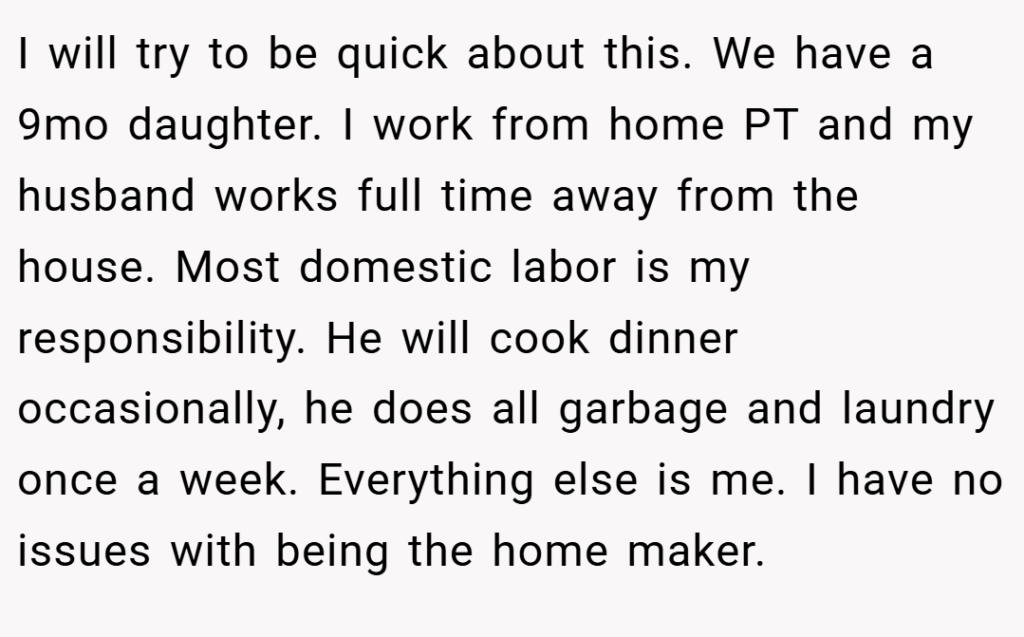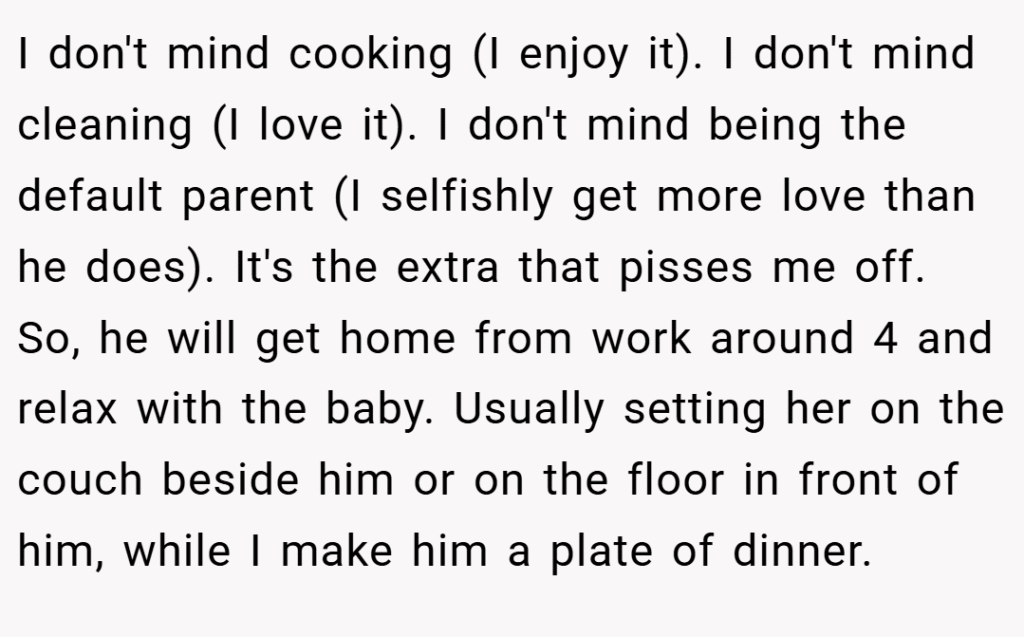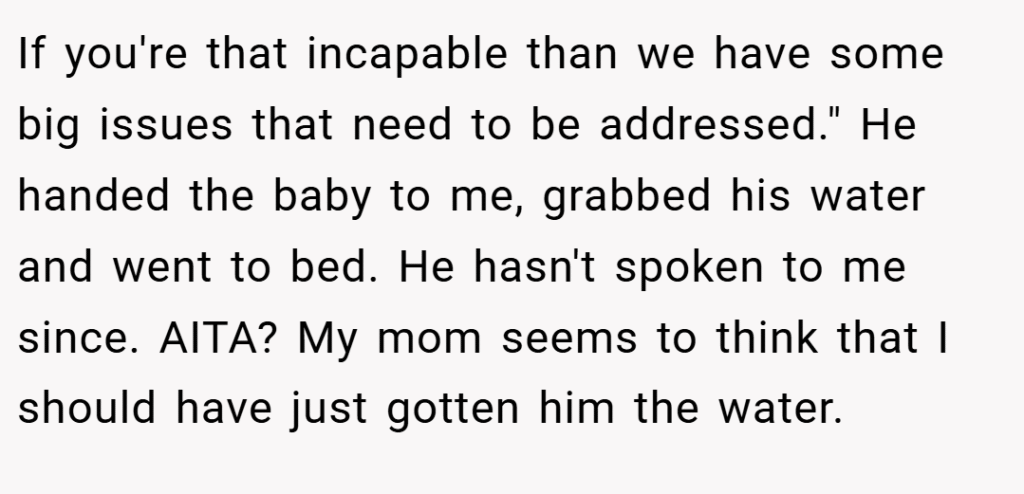Picture a kitchen brimming with the chaos of a 9-month-old’s mealtime—spoons clattering, purees splattering, and a mother balancing it all with frayed patience. She’s the heart of the home, cooking and cleaning with love, yet her husband’s steady stream of requests—another drink, a quick dessert—piles on like the untouched dishes in the sink.
After a brutal night of soothing a teething toddler, exhaustion finally overtook her. Frustration surged as she snapped, telling him to get off the couch and handle it himself. The silence that followed was heavy—his sulking left her wondering if she had been too harsh.
Was this simply a moment of fatigue, or did her outburst signal something deeper—a plea for fairness in a home where labor is shared unevenly? Readers, dive into a story of love, domestic burdens, and a marriage stretched by unspoken expectations. Where do we draw the line between teamwork and taking advantage?

‘AITA for telling my husband to get off his ass and do s**t for himself?’









Parenting is meant to be a shared journey, yet for this mom, the burden feels overwhelmingly one-sided. She manages the bulk of household tasks, embracing her role with love, but her husband’s constant requests—like asking for water while she juggles their baby—push her past her limit. When she finally snapped, telling him to handle it himself, his reaction shifted from amusement to sulking silence.
But this isn’t just about fetching a drink—it’s about respect.
To him, the asks are small, woven into the fabric of their dynamic. He leans on her homemaker role, unaware of the extra weight she carries. Meanwhile, his withdrawal—especially on tough days—hints at an underlying guilt-tripping, whether intentional or not. She’s exhausted, experiencing the common postpartum sensation of feeling “touched-out,” yet he misses the signs. And by always stepping up, she inadvertently perpetuates the cycle.
This reflects a larger issue: the imbalance of domestic labor. A 2023 Pew Research study found that 59% of mothers in dual-income households take on more childcare than fathers, often breeding resentment. Marriage expert Dr. John Gottman notes, “Small bids for connection—like helping without being asked—build trust.” In this scenario, he’s not bidding for connection—he’s bidding for convenience.
They need a reset. A calm conversation—maybe over coffee while the baby naps—could pave the way for more defined roles: him cooking twice a week, taking charge of bath time, or handling the small tasks that add up. Meanwhile, she can resist the urge to immediately step in, allowing him to problem-solve instead of leaning on her by default.
What about you? Have you faced similar struggles with dividing household responsibilities? Share your thoughts below.


